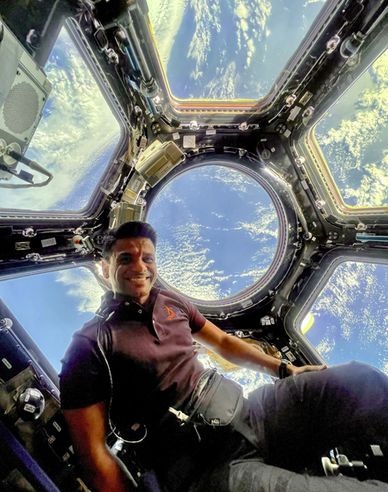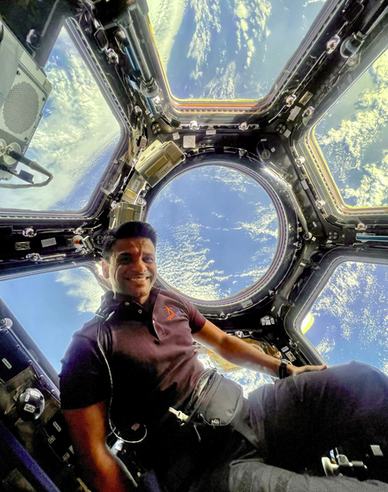NEW DELHI– Indian astronaut Shubhanshu Shukla, currently aboard the International Space Station (ISS) as part of Axiom Space Mission 4, has conducted groundbreaking experiments involving the sprouting of green gram and fenugreek seeds in microgravity, NASA announced.
Shukla is the first Indian to live and work on the ISS and only the second Indian in space, following Rakesh Sharma’s historic flight in 1984.
While in orbit, Shukla is performing a series of experiments developed through a collaborative effort between the Indian Space Research Organisation (ISRO), the Department of Biotechnology (DBT), and NASA.
One of the key experiments, titled Sprouting Salad Seeds in Space (SPROUTS), aims to study the growth, nutritional value, hormonal and genetic responses, and microbial environment of sprouted green gram and fenugreek seeds—two staple foods in Indian diets.
Transporting sufficient food for long-duration space missions is both costly and unsustainable. NASA said findings from the SPROUTS experiment could pave the way for efficient plant-based food production in space, improving crew nutrition and self-sufficiency.
“Plant-based food production systems can play a crucial role in achieving the long-term goals of human space exploration,” NASA stated. “Sprouted seeds offer a highly nutritious alternative, delivering more nutrients per unit mass than fully grown plants.”
The experiment also serves a dual purpose—laying the foundation for developing India-specific salad crops suitable for spaceflight, while accommodating the unique dietary preferences of Indian astronauts.
Researchers are analyzing how space’s unique environment affects germination rates, nutritional content, and the activity of phytohormones during the sprouting process. These insights could also inform innovations in controlled-environment agriculture on Earth, improving food quality in regions with harsh growing conditions.
Born in Lucknow, Shukla is currently on a 14-day scientific mission aboard the ISS alongside astronauts from the United States, Poland, and Hungary. (Source: IANS)



